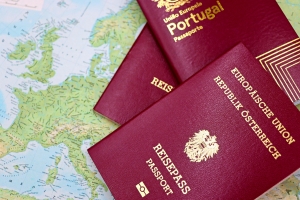Since the UK’s departure from the EU, staffing discerning homes with EU nationals has transformed. Brexit ended free movement in 2021, shifting how London and UK households hire housekeepers, nannies, or chefs from Europe. At Marshall Harber, we’ve adapted to these changes, offering expert guidance to clients navigating this legacy. Here’s what you need to know about employing EU staff in 2025.
Brexit’s Impact on EU Staffing
Pre-Brexit, EU nationals made up 29% of UK migration; by 2025, this has dropped as non-EU immigration rose to 79%. Free movement is replaced by visa requirements, with many EU workers needing settled status (deadline 30 June 2021) or new visas. This shift has reduced the pool of available EU talent, prompting a reliance on alternative recruitment strategies.
Visa and Legal Requirements
• Settled Status: EU nationals living in the UK before 31 December 2020 can apply for settled status, allowing them to work without visas.
• Skilled Worker Visa: Required for new EU hires, needing a sponsor license, a job offer, and a minimum salary (£38,700 in 2025, rising to £41,700 in July).
• Right-to-Work Checks: Mandatory, with fines up to £60,000 per illegal worker.
Existing EU staff can stay, but new hires face stricter rules, impacting roles like live-in staff.
Pros, Challenges, and Strategies
• Pros: EU nationals often bring diverse skills and cultural alignment with UK homes.
• Challenges: Visa costs, language requirements (B1-B2 English), and reduced availability.
• Strategies: Partner with a specialist agency like Marshall Harber to vet candidates and manage compliance, ensuring a smooth hiring process.
Expert Support from Marshall Harber
Brexit’s legacy requires careful navigation. Our team meets every candidate, verifying their status and skills to match your discerning household needs. Trust us to bridge the gap left by these changes.





